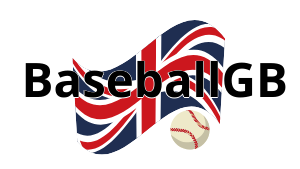Four new members join the British Baseball Hall of Fame The 2019 elections to the British Baseball Hall of Fame have introduced four new inductees, increasing the class to 38.…
British Baseball Hall of Fame
-
-
The 2017 elections to the British Baseball Hall of Fame have introduced three new inductees, increasing the class to 32
-
British baseball
Four more additions to the British Baseball Hall of Fame
by Matt Smithby Matt SmithAlex Malihoudis, Oscar Marcelino, John Thomas and Wally O’Neil are the 2016 entrants to the British Baseball Hall of Fame
-
Alan Smith, Cody Cain, and Josh Chetwynd are inducted
-
British baseballProject COBB
Four new members of the British Baseball Hall of Fame inducted in 2013
by Joe Grayby Joe GrayToday the fifth annual class of the British Baseball Hall of Fame (BBHoF) has been announced, and there are four new inductees, bringing the total membership to 22. The inductees…
-
British baseballProject COBB
Seven more individuals inducted into British Baseball Hall of Fame
by Joe Grayby Joe GrayThe fourth annual class of the British Baseball Hall of Fame (BBHoF) sees seven more inductees announced: Bill Dawber, John Devey, Michael Harrold, RG Knowles, Simon Pole, Terry Warner, and…
-
British baseballProject COBB
British Baseball Hall of Fame to induct seven more individuals next week
by Joe Grayby Joe GrayInductees revealed on 9 October
-
British baseballProject COBB
Gerard-Thesingh, Gladu, and Thurston are latest inductees in the British Baseball Hall of Fame
by Joe Grayby Joe GrayThe second Tuesday in October, now established as the traditional time for announcing the new annual set of inductees into the British Baseball Hall of Fame (BBHoF), sees three more…
-
British baseballProject COBB
Five more inductees join British Baseball Hall of Fame with announcement of second annual class
by Joe Grayby Joe GrayAn announcement on the second class of the British Baseball Hall of Fame
-
Project COBB
Press coverage gained in Merseyside for Norman Wells, Sr, Sir John Moores, and the British Baseball Hall of Fame
by Joe Grayby Joe GrayWith two of the three inaugural inductees into the British Baseball Hall of Fame last month being Merseyside-based (Sir John Moores and Norman Wells, Sr), this is clearly the region…

